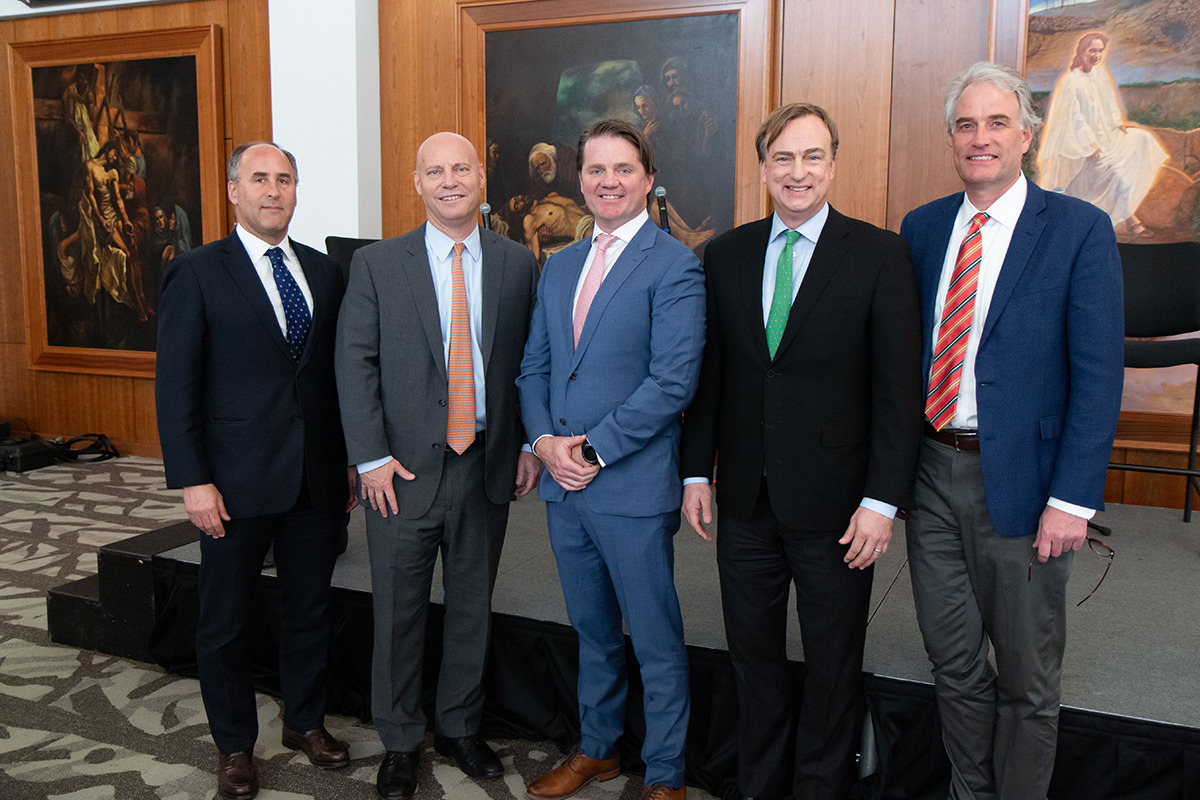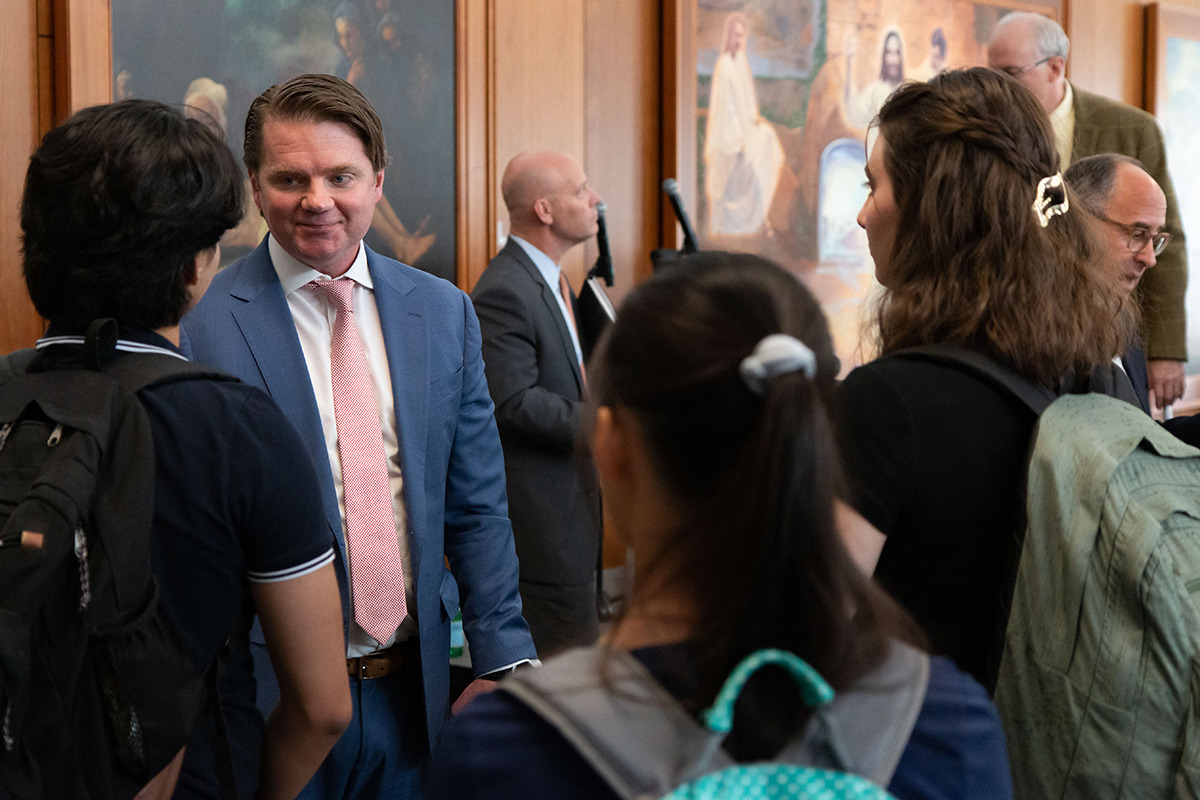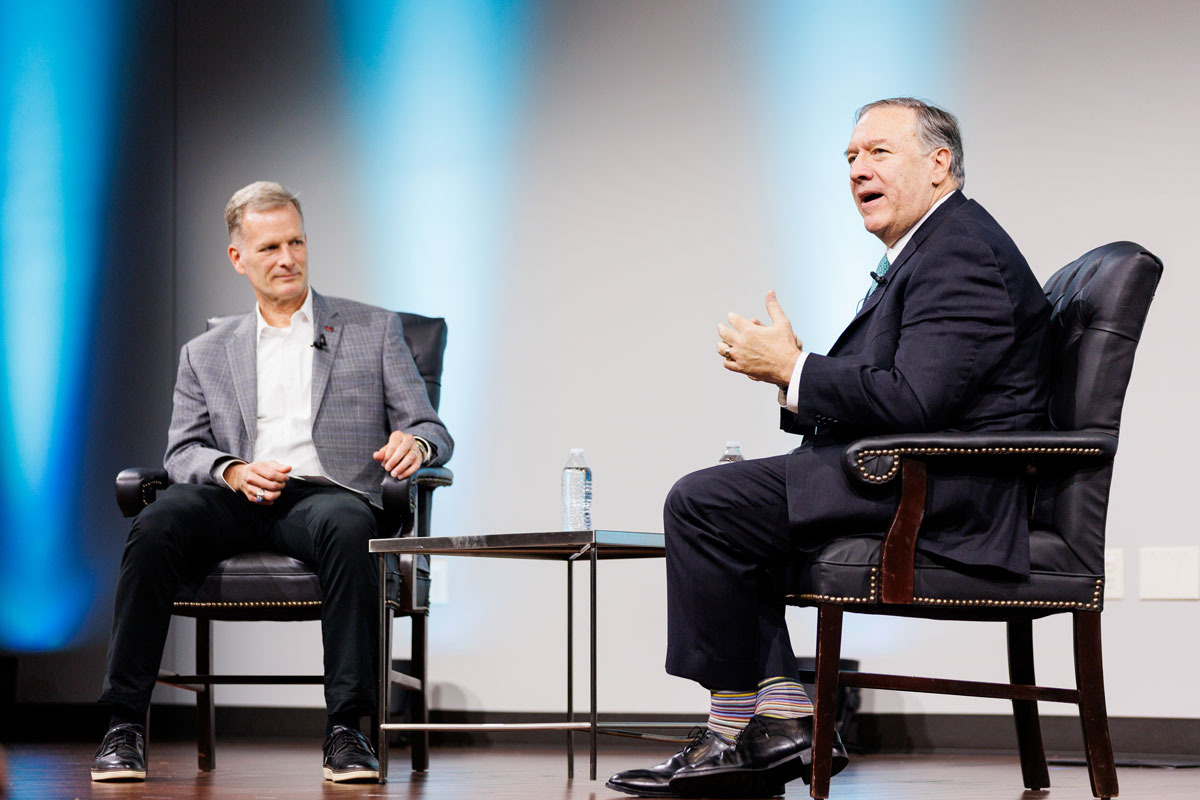Search News Archives
Filter News Articles
Additional Navigation
Helms School of Government hosts national security panel focusing on US-China, Russia relations
March 2, 2023 : By Christian Shields - Office of Communications & Public Engagement

Liberty University Helms School of Government hosted a national security panel, “Geo-Political Competition: China & Russia,” featuring several special guests on Tuesday in the Montview Alumni Ballroom.
The panel, hosted by Marc Short, former chief of staff to Vice President Mike Pence, included a discussion with Michael Allen, Brendan Stickles, and Nicholas Snyder.
Allen currently serves as the managing director of Beacon Global Strategies, an advisory firm specializing in International policy, defense, cyber intelligence, and homeland security. From 2011-12, he was the majority staff director of the House Permanent Selection Committee on Intelligence. Prior to this, he spent seven years in the George W. Bush White House.
Stickles is a retired commander for the U.S. Navy and currently works for Boston Consulting Group. He previously worked as Special Advisor for Defense in the Office of the Vice President of the United States from 2019-21.
Snyder serves as the Deputy Coordinator for Strategic Communications in the Office of China Coordination at the U.S. Department of State. He is a member of the Senior Foreign Center.
The discussion, which operated under Chatham House rules (no participants can be directly quoted in published materials), covered a variety of topics regarding U.S. relations with China and Russia.
The guests first addressed China’s continued refusal to embrace liberalism and compared America’s conflict with China to the U.S. involvement in the Cold War against the then U.S.S.R. The U.S. won the Cold War in part because of its strong economy. In contrast, the panelists said China’s economy now rivals the U.S., rising five times since 2004 while the U.S. economy has failed to keep that same pace.
This discussion fed into the importance of defending Taiwan, with panelists listing several reasons why it is necessary that Taiwan remains a free economy. Some of the reasons included that it deserves to be a democracy, a large percentage of trade passes through the Taiwan Strait, and the U.S. has security interests in defending Taiwan.

The panel also discussed the Russia-Ukraine War and the importance of America sending supplies to Ukraine. Speakers noted that the U.S. should enact sanctions against China if it decides to support Russia’s invasion.
Returning to the conflict with China, the panel provided commentary on the Chinese military budget compared with that of America and argued that while the U.S. spends more than the rest of the world combined on overall national defense ($1.2 trillion), China remains superior in terms of cost efficiency. One example of this, panelists said, is the relatively cheap Chinese spy balloon that was shot down in the beginning of February by an American F22 aircraft that cost around $200 million.
The panel concluded with a time of questions from students in the audience.
In a response to a question about energy dependence, panelists emphasized the importance of American self-reliance on energy. They added that while America should use its domestic pipelines as an immediate fix to energy issues, the country must also find sustainable energy alternatives for the future, with China maintaining a strong grip on minerals needed for technology such as electric vehicles.
Speakers also responded to a question about how the U.S. would be able to remove itself from dependence on China for resources by stating that it must be done carefully and slowly to prevent a collapse in the global economy. Also, they argued that the U.S. must continue to enforce the American dollar as the standard currency and combat Chinese efforts to replace it with the Yuan.
Short said the panel was “an incredibly timely conversation,” especially in light of the growing appreciation of the threat that China poses.
“I would also say it’s incredibly encouraging to us to be here with so many inquisitive students who have great questions to be asking. I think the timing is great, but it’s also a benefit to those of us who got to be on the panel too.”
Helms School of Government Dean Robert Hurt also spoke positively about the panel. 
“It was a great honor to have such a distinguished panel of guests join us to discuss such an important subject,” Hurt said. It is our hope here at Liberty that each of our students left the session with a desire to consider career paths that might contribute to meeting the challenges our country faces in this new geo-political competition. As always, we are indebted to our guests for making the time to engage with our students on such a serious topic.”
The panel shows a continued emphasis that the Helms School of Government places on hosting national government officials on a regular basis. Already this semester, the school has hosted Virginia Attorney General Jason Miyares, Maj. Gen. Jason Bohm, former Congressman Lt. Col. Allen West, and Tim Goeglein.


